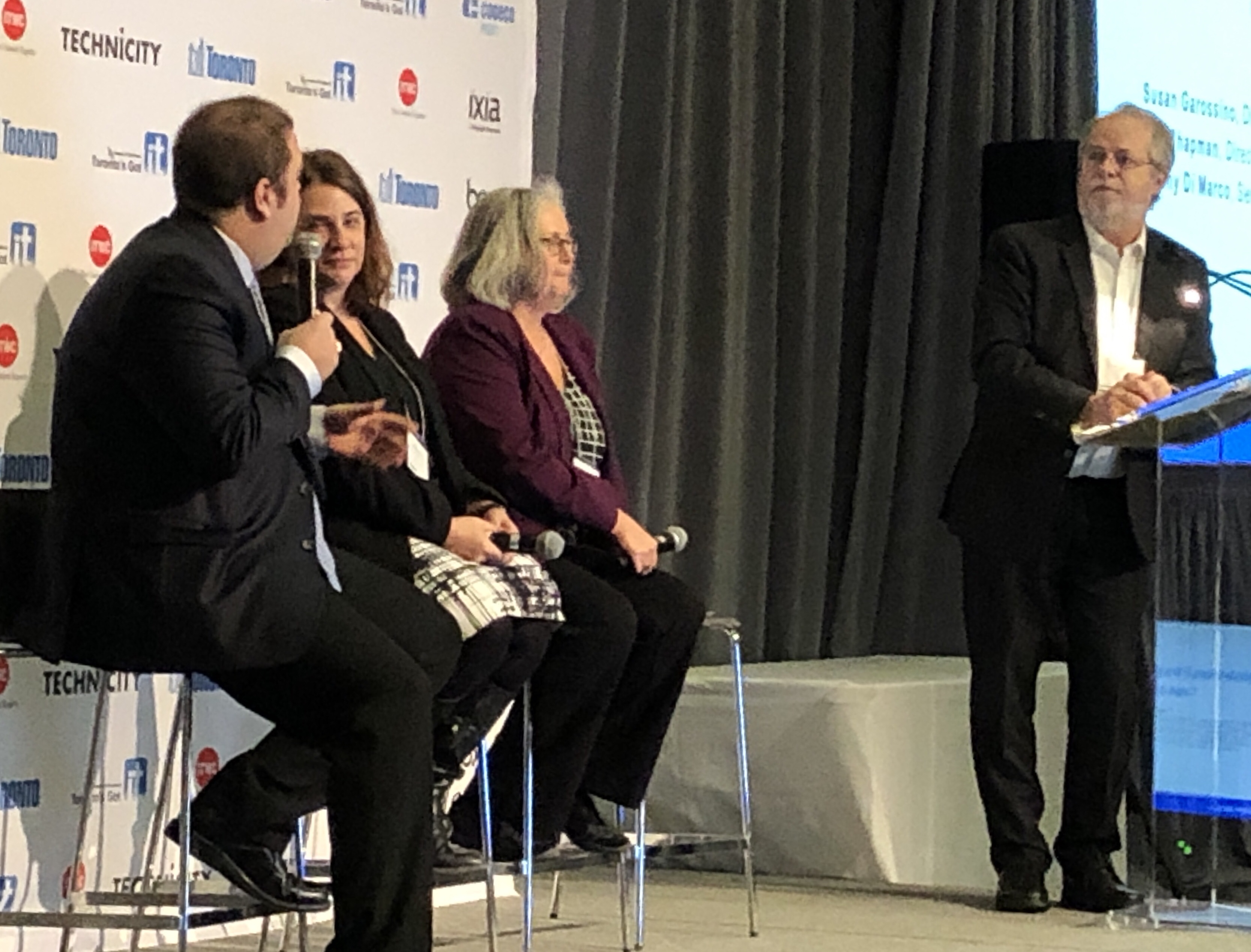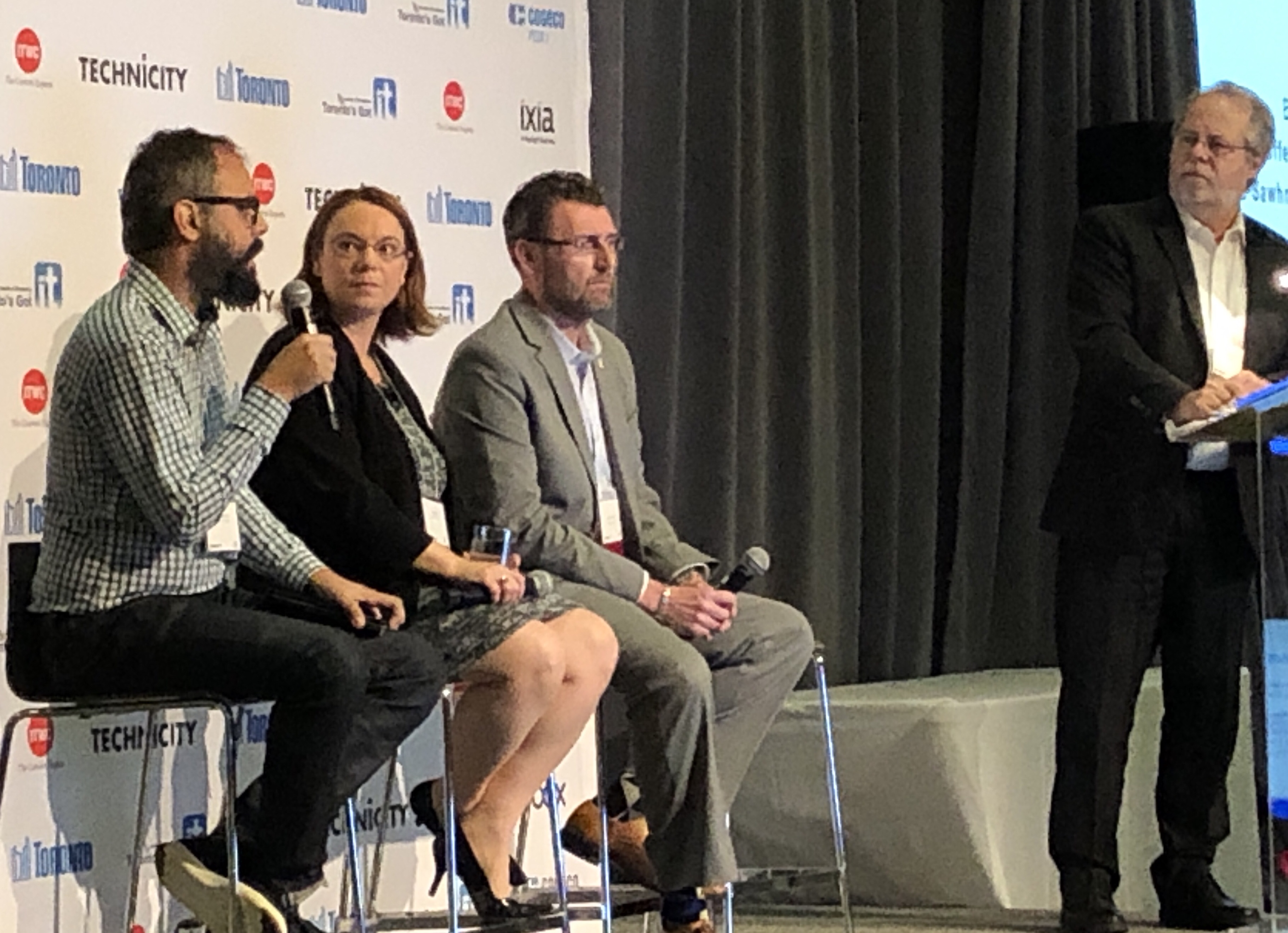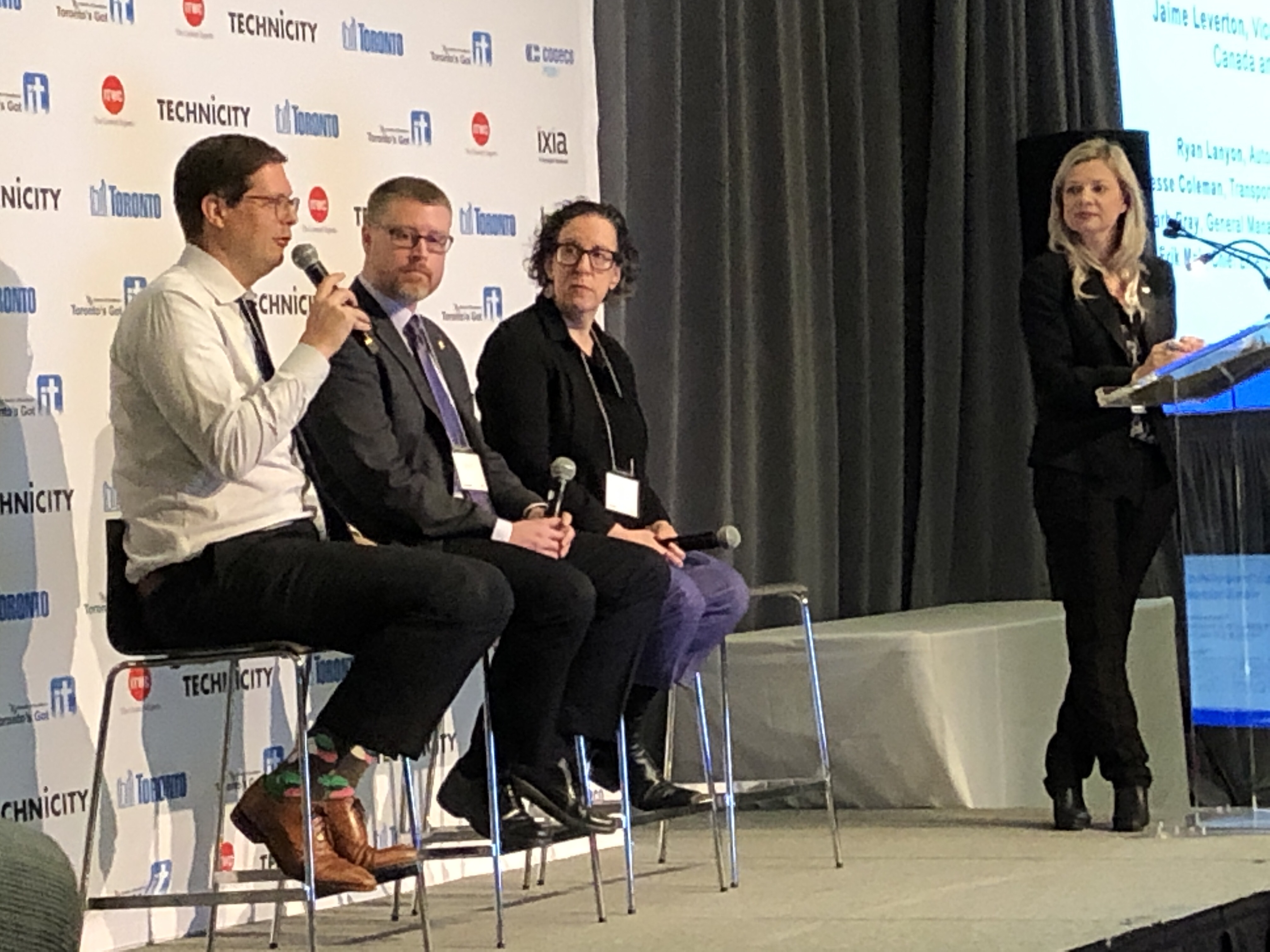I’m attending the Technicity conference today in Toronto, which focuses on the digital transformation efforts in our city. I’m interested in this both as a technologist, since much of my work is related to digital transformation, and as a citizen who lives in the downtown area and makes use of a lot of city services.
After brief introductions by Fawn Annan, President and CMO of IT World Canada (the event sponsor), Mike Williams, GM of Economic Development and Culture with City of Toronto, and Rob Meikle, CIO at City of Toronto, we had an opening keynote from Mark Fox, professor of Urban Systems Engineering at University of Toronto, on how to use open city data to fix civic problems.
Fox characterized the issues facing digital transformation as potholes and sinkholes: the former are a bit more cosmetic and can be easily paved over, while the latter indicate that some infrastructure change is required. Cities are, he pointed out, not rocket science: they’re much more complex than rocket science. As systems, cities are complicated as well as complex, with many different subsystems and components spanning people, information and technology. He showed a number of standard smart city architectures put forward by both vendors and governments, and emphasized that data is at the heart of everything.
He covered several points about data:
- Sparseness: the data that we collect is only a small subset of what we need, it’s often stored in silos and not easily accessed by other areas, and it’s frequently lost (or inaccessible) after a period of time. In other words, some of the sparseness is due to poor design, and some is due to poor data management hygiene.
- Premature aggregation, wherein raw data is aggregated spatially, temporally and categorically when you think you know what people want from the data, removing their ability to do their own analysis on the raw data.
- Interoperability and the ability to compare information between municipalities, even for something as simple as date fields and other attributes. Standards for these data sets need to be established and used by municipalities in order to allow meaningful data comparisons.
- Completeness of open data, that is, what data that a government chooses to make available, and whether it is available as raw data or in aggregate. This needs to be driven by what problems that the consumers of the open data are trying to solve.
- Visualization, which is straightforward when you have a couple of data sets, but much more difficult when you are combining many data sets — his example was the City of Edmonton using 233 data sets to come up with crime and safety measures.
- Governments often feel a sense of entitlement about their data, such that they choose to hold back more than they should, whereas they should be in the business of empowering citizens to use this data to solve civic problems.
Smart cities can’t be managed in a strict sense, Fox believes, but rather it’s a matter of managing complexity and uncertainty. We need to understand the behaviours that we want the system (i.e., the smart city) to exhibit, and work towards achieving those. This is more than just sensing the environment, but also understanding limits and constraints, plus knowing when deviations are significant and who needs to know about the deviations. These systems need to be responsive and goal-oriented, flexibly responding to events based on desired outcomes rather than a predefined process (or, as I would say, unstructured rather than structured processes): this requires situational understanding, flexibility, shared knowledge and empowerment of the participants. Systems also need to be introspective, that is, compare their performance to goals and find new ways to achieve goals more effectively and predict outcomes. Finally, cities (and their systems) need to be held accountable for actions, which requires that activities need to be auditable to determine responsibility, and the underlying basis for decisions be known, so that a digital ombudsman can provide oversight.
Great talk, and very aligned with what I see in the private sector too: although the terminology is a bit different, the principles, technologies and challenges are the same.
Next, we heard from Hussam Ayyad, director of startup services at Ryerson University’s DMZ — a business incubator for tech startups — on Canadian FinTech startups. The DMZ has incubated more than 260 startups that have raised more than $206M in funding over their six years in existence, making them the #1 university business incubator in North America, and #3 in the world. They’re also ranked most supportive of FinTech startups, which makes sense considering their geographic proximity to Toronto’s financial district. Toronto is already a great place for startups, and this definitely provides a step up for the hot FinTech market by providing coaching, customer links, capital and community.
Unfortunately, I had to duck out partway through Ayyad’s presentation for a customer meeting, but plan to return for more of Technicity this afternoon.
 The rest of the afternoon was the 10th annual Toronto’s Got IT Awards of Excellence, but unfortunately I had to duck out for other meetings, so that’s it for my Technicity 2018 coverage.
The rest of the afternoon was the 10th annual Toronto’s Got IT Awards of Excellence, but unfortunately I had to duck out for other meetings, so that’s it for my Technicity 2018 coverage.


